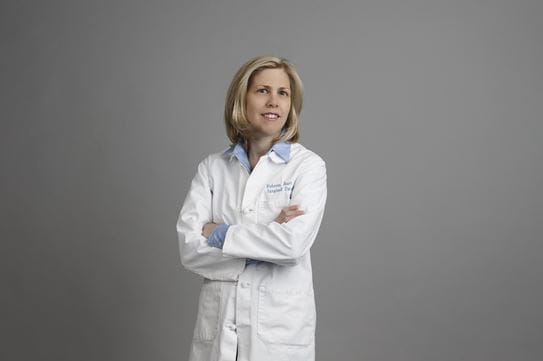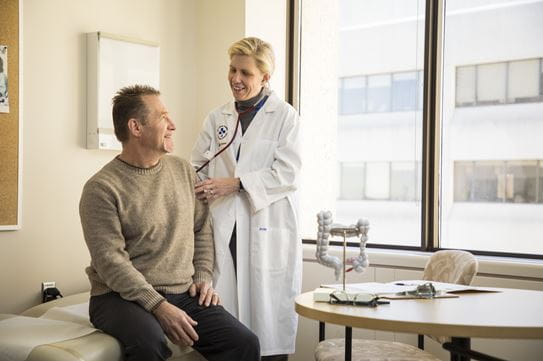Dr Rebecca Auer hopes donors continue to support the Daffodil Campaign after seeing progress on the cutting-edge of research to improve cancer survival.
For more than 65 years, the Canadian Cancer Society (CCS) has celebrated the Daffodil Campaign. The daffodil is resilient - the first flower to bloom in spring. For those living with cancer, it is a symbol of strength, courage and hope.
2 in 5 Canadians are expected to be diagnosed with cancer in their lifetime. Donating is the most impactful way to support people living with cancer and change the future of cancer forever. Few people believe this more than Dr Rebecca Auer. Her exciting and trailblazing work to power-up the immune systems of people diagnosed with cancer has only strengthened her view that the future of cancer is brighter than ever.
Cutting-edge cancer research to improve survival

When Dr Auer was a surgical resident, people with cancer were starting to receive new and more progressive therapies than radiation therapy and chemotherapy. She knew early on that was where she wanted to focus her career – translating new discoveries in the lab to people receiving cancer treatment.
One of Dr Auer’s earliest discoveries was how surgery can weaken the immune system, resulting in any remaining cancer cells spreading more freely. This discovery compelled her and the rest of her team to focus on creating a cancer treatment that can restimulate an anti-tumour immune response after surgery - an area of research with very little prior knowledge.
With funding from the Canadian Cancer Society (CCS), this cancer treatment was created using a novel combination of drugs that can be given to people diagnosed with cancer immediately before surgery to prevent further spread. Dr Auer also focused some of her research on improving the effectiveness of oncolytic virus therapy and testing the delivery of these types of therapies around the time of surgery in clinical trials. Her team hopes that their work will continue to lead new treatment strategies and improve outcomes for people diagnosed with cancer.
Seeing what my patients go through - seeing their struggle - makes me want to do more. They believe in my work and I want to prove to them that we can deliver. I’ll do what I can to deliver the best treatments as quickly as possible.
As there are still unanswered questions about the effects of surgical stress on the immune system, she continues to investigate how to reverse the negative impacts of cancer surgery.
“Our research suggests that if you’re a cancer patient, the bigger the surgery, the more cancer burden you have and the longer the period of immune system suppression is. The degree of suppression is also worse.”
Now, Dr Auer is working to understand why a particular type of immune cell known as “Natural Killer” cells stop working in the days after surgery. With her current Canadian Cancer Society grant, she will find out why Natural Killer cells in the human body are so badly affected and will create these cells in the lab that are resistant to the stressful effects of surgery. The number of patients across Canada and across the world who may benefit from her findings still acts as her main motivation.Words of encouragement and optimism for donors and people with cancer

Since beginning work in the lab, Dr Auer has noticed new discoveries are being made more rapidly, because of a blurring between research and clinical care. The last approvals of new discoveries she has seen have been based on smaller, very targeted test groups of patients and fewer phases for each study.
The number one reason is that we understand the biology behind cancer now, more than ever. People need to understand that research saves lives. Research is care and sometimes it’s the best care we can offer.
She especially hopes that donors know the effect they can have on people diagnosed with cancer and that they are an essential reason to be hopeful for what the community can achieve together.
“When working with cancer patients, people will say to me ‘well, is this curable?’ I don’t think I’ve ever said no. I always say, ‘not yet’. Because things that we thought were completely incurable less than 5 years ago, those things are curable now.”
“To all the donors, I hope they understand that cancer is complicated and cancer is a challenge to cope with, treat and recover from. But I believe, unquestionably that we will eventually find a cure for every single cancer.”
